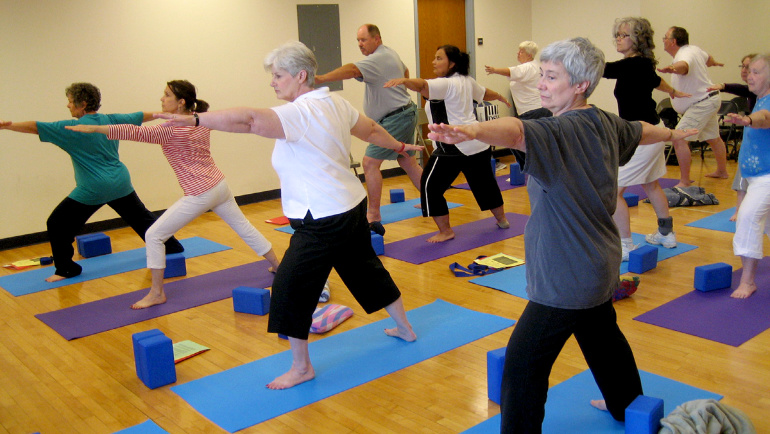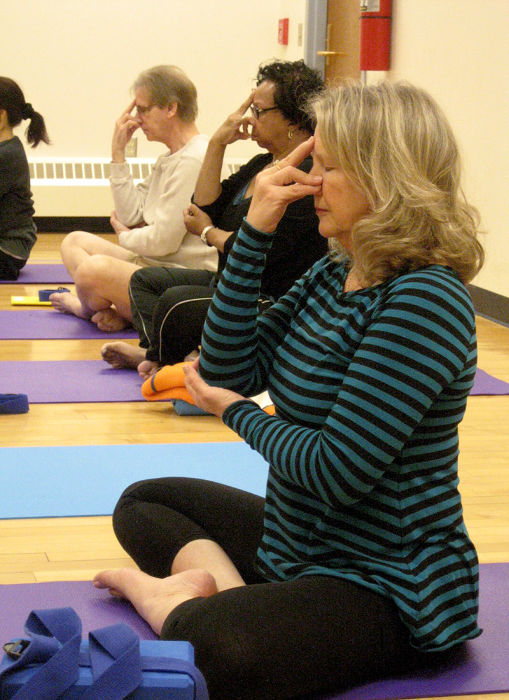
Researchers have long known that aerobic exercise is not only good for the body but also the brain. High intensity exercise drives blood and oxygen to brain cells to keep them healthy and stimulate the growth of neurons.
A recent research review, however, co-authored by Wayne State University Institute of Gerontology’s Jessica Damoiseaux, Ph.D., found many of the same brain benefits seen in aerobic exercise after a few months of yoga practice. “The science is pointing to yoga being beneficial for healthy brain function,” Damoiseaux said, but more studies are needed.
The review, published in the journal Brain Plasticity, focused on 11 studies of yoga practice and brain health. Five studies recruited individuals with no background in yoga to attend one or more yoga sessions per week for 10-24 weeks, comparing pre-yoga and post-yoga brain health. The other studies measured brain differences between individuals who regularly practice yoga and those who don’t. Dr. Neha Gothe, professor of kinesiology and community health at the University of Illinois, led the research with Damoiseaux.

Studies showed an increase in the size of the brain’s hippocampus, which processes memories and typically shrinks with age. “It is also the structure that is first affected in dementia and Alzheimer’s disease,” Gothe said.
The study also points to important brain changes in the amygdala, which helps to regulate emotion, and the prefontal cortex, “which is essential to planning, decision-making, multitasking, thinking about options and picking the right option,” Damoiseaux said. Yoga has been shown to reduce levels of the stress hormone cortisol, a possible factor in improving brain functioning.
Both researchers agree that the results of their review warrant further study.
“Yoga is not aerobic in nature, so there must be other mechanisms leading to these brain changes,” Gothe said. They recommend large intervention studies that engage participants in yoga for months, match yoga groups with active control groups, and measure brain changes and performance on cognitive tests that can be compared against other types of exercise. “We need more rigorous and well-controlled intervention studies to confirm these studies,” Damoiseaux said.
The results of their work appeared in media outlets across the country, including US News & World Report, CNBC, Runner’s World and WebMD.
By Cheryl Deep, media relations and publications director for the Institute of Gerontology and Merrill Palmer Skillman Institute for Child & Family Development. This story first appeared in the spring 2020 edition of Transitions.
